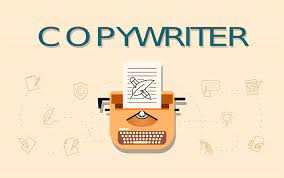
Many people are confused about the difference between a job and a business. A person who works at a typical full-time job usually makes more money than someone running their own business, but that’s not necessarily true in all cases.
Depending on the nature of your business, it may be difficult to earn much money at first, especially if you’re starting out as an independent contractor or freelancer. On the other hand, there are plenty of successful businesses that make more profit than most salaried jobs—even in the first year or two of operation!
Choosing between working in your own business or working for someone else can be confusing and frustrating. There are many factors to consider, and it’s hard to know what the right choice is.
You need to understand the difference between starting your own business and working at a job so you can make an informed decision on which path would be best for you based on your goals, circumstances, resources, and limitations.
This article will discuss the various pros and cons of starting your own business versus working for someone else so you can decide which route suits you best.
What is a business?
A business is a company or organization that makes and sells goods or provides services. A business usually has a product, service, or brand that sets it apart from the competition.
Businesses make money through sales of their products or by providing services. Some companies sell other companies' products under their own name (known as branding). Others provide an intangible product like security advice. Most businesses are organized as corporations.
The term business can also be used to refer to a particular economic sector within an economy, such as the travel business. The term may also refer to a profession or trade such as in the business of medicine. There are many different types of businesses, including multinational corporations, small family-owned firms, partnerships and sole proprietorships.
What is a job?
A job is a position that pays a fixed wage or salary for labor. Jobs are often full time, but can also be temporary or part-time. One major difference between a job and a business is that when you have a job, you work for someone else.
When you have your own business, it's yours. You set the hours, the pay, the rules, and so on. What does this mean for people? If you want to make more money, then running your own business may be better than working for someone else. But if you need to know exactly how much money will come in each week because of child support payments or other monthly expenses, then a job would probably suit you better.
The pros and cons of each
The pros of starting a business are that you get to choose your own hours, work on something you're passionate about, and do something different every day.
The cons of starting a job are that it's less flexible, and the hours can be long and unpredictable. The pros of working a job are that they provide health insurance and some retirement benefits.
The cons are the lack of flexibility with time off, and the unpredictability with hours. One major pro for businesses over jobs is that if you don't like what you're doing then there's always another opportunity out there to find something new.
However, this isn't as easy when you have a job because you usually only have one or two employers at any given time. Another pro for running a business is that many people think having their own company allows them to take more risks than they would in a traditional workplace setting where risk-taking isn't really allowed.
On the other hand, one con of running a business is that all aspects of your life have to come into play when making decisions which may lead to stress levels going up.
Which is better for you?
The decision to start a business over getting a job is one that you'll have to weigh based on what your personal goals are. If you're looking for more independence and control of your income, starting a business may be the right path for you.
On the other hand, if you are looking for stability and benefits, getting a job might be the better option. Once you've weighed your options and decided what's best for you, all that's left to do is get started!
Starting your own business will require some hard work and dedication in order to get it off the ground. You can find many free resources online that provide advice and guidance on how to make it happen.
One way is by following these steps:
• Step 1 - Define Your Business Model
• Step 2 - Create Your Marketing Plan
• Step 3 - Research & Develop Your Product or Service
• Step 4 - Offer Something Unique & Different
• Step 5 - Determine Pricing
• Step 6 - Choose Your Location
• Step 7 - Prepare for Startup Expenses
• Step 8 - Build Your Team
• Step 9- Open for Business
• Step 10- Ongoing Maintenance
Conclusion
Ultimately, the decision to start a business or not will come down to your personality and how you feel about risk.
If you are someone that doesn’t like taking risks, feels overwhelmed by all the things they need to know, or doesn’t think their skills are marketable enough for starting a business, then it might be better to get a job.























